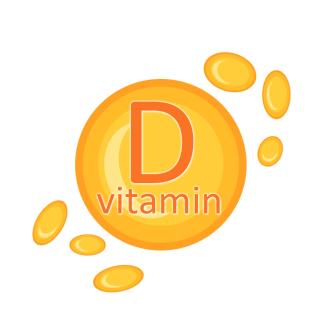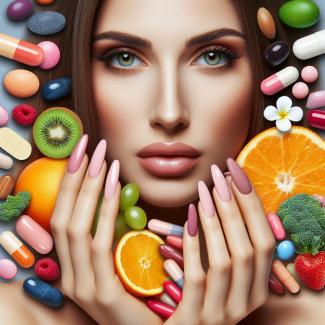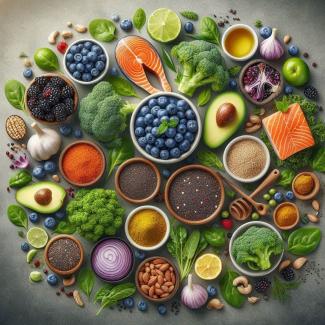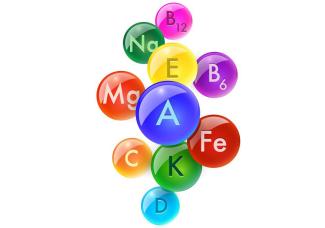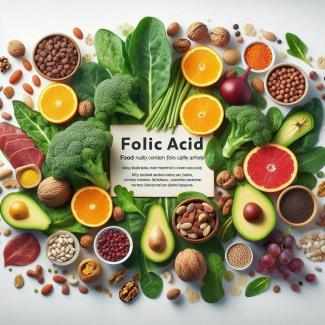
Maintaining good eye health is crucial for overall well-being and quality of life. Several vitamins play vital roles in preserving and enhancing vision, each contributing uniquely to the health of the eyes. Here are the most important vitamins for eye health, along with detailed descriptions of their functions and benefits:
1. Vitamin A
Role in Eye Health:
- Essential for the production of rhodopsin, a pigment in the retina that helps you see in low light conditions.
- Helps maintain the cornea, which is the clear front surface of the eye.
Benefits:
- Prevents night blindness.
- Reduces the risk of age-related macular degeneration (AMD) and cataracts.
- Supports overall immune function, which indirectly benefits the eyes.
Sources:
- Animal-derived foods: liver, fish, and dairy products.
- Plant-based sources (as beta-carotene): carrots, sweet potatoes, spinach, kale, and other leafy green vegetables.
2. Vitamin C
Role in Eye Health:
- Acts as an antioxidant, protecting the eyes from damage caused by free radicals.
- Promotes healthy blood vessels in the eyes.
- Contributes to the formation of collagen, important for maintaining the structure of the cornea and sclera (the white part of the eye).
Benefits:
- Reduces the risk of developing cataracts.
- Slows the progression of AMD.
- Supports the body's immune system, enhancing overall health and eye function.
Sources:
- Citrus fruits (oranges, grapefruits), strawberries, bell peppers, broccoli, and Brussels sprouts.
3. Vitamin E
Role in Eye Health:
- Another potent antioxidant that protects eye cells from damage by free radicals.
- Works synergistically with other antioxidants like vitamin C to keep the eyes healthy.
Benefits:
- Reduces the risk of cataracts and AMD.
- Protects the retina and other sensitive tissues in the eye from oxidative damage.
Sources:
- Nuts and seeds (almonds, sunflower seeds), spinach, broccoli, and vegetable oils (such as sunflower and safflower oil).
4. Vitamin D
Role in Eye Health:
- Important for overall immune function and inflammation reduction.
- Recent studies suggest it may play a role in preventing AMD.
Benefits:
- May help reduce the risk of AMD.
- Supports overall eye health by maintaining good systemic health and reducing inflammation.
Sources:
- Sunlight exposure is the primary source.
- Food sources include fatty fish (salmon, mackerel), fortified dairy products, and egg yolks.
5. Vitamin B Complex (B1, B2, B3, B6, B9, B12)
Role in Eye Health:
- B vitamins play various roles in reducing inflammation, supporting red blood cell function, and maintaining overall eye health.
Benefits:
- Vitamin B1 (Thiamine): Reduces the risk of cataracts and diabetic retinopathy.
- Vitamin B2 (Riboflavin): Important for preventing cataracts.
- Vitamin B3 (Niacin): Supports overall eye health and may reduce the risk of glaucoma.
- Vitamin B6, B9 (Folate), B12: Work together to reduce levels of homocysteine, a protein linked to inflammation and an increased risk of AMD.
Sources:
- Whole grains, meats, eggs, dairy products, legumes, seeds, and leafy green vegetables.
6. Lutein and Zeaxanthin
Role in Eye Health:
- These are not vitamins but are carotenoids important for eye health.
- They accumulate in the retina, particularly in the macula, where they help filter harmful blue light and act as antioxidants.
Benefits:
- Reduce the risk of chronic eye diseases, including AMD and cataracts.
- Protect the eyes from oxidative stress and high-energy light waves like UV rays and blue light.
Sources:
- Green leafy vegetables (kale, spinach), corn, eggs, and citrus fruits.
Conclusion
Each of these vitamins and nutrients plays a crucial role in maintaining eye health and preventing various eye conditions. A balanced diet rich in these vitamins can help protect your vision and ensure that your eyes function properly throughout your life. For individuals with specific concerns or conditions, it may be beneficial to consult with an eye care professional or a dietitian to tailor a diet or supplement regimen that best supports their eye health.

